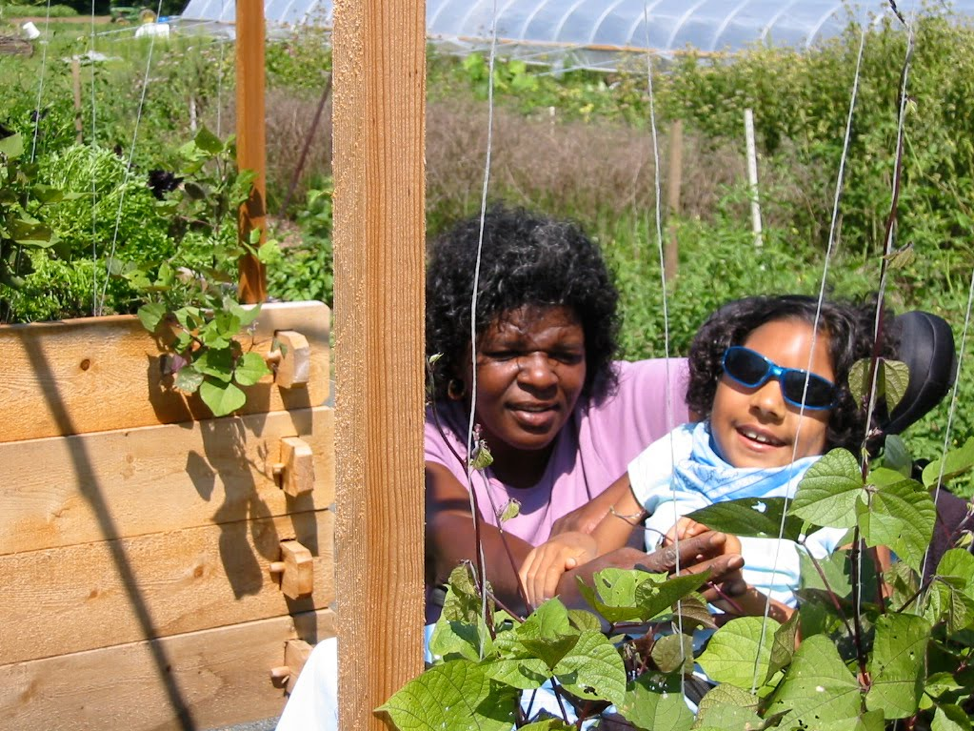
Nourishing Young Minds: The Impact of Nutrition on Children’s Mental Health
By Emma Hardy
Health Educator
By Jessica Fowler, CADC, CPS
MindWELL Project Manager
Nutrition is often considered fuel for your bones and muscles, but it also plays a huge role in the development of your brain, brain health, and mental wellness. The brain continues to develop until 24-25 years old, and nutrition plays a significant role along the way. The influence of nutrition on mental health is often overlooked, but providing children with a balanced diet can support positive physical and mental growth.
A balanced diet supports the whole child, emotionally and physically.
The absence of a balanced diet can have a direct negative impact on a child’s mental health. Research has found that children who live with food insecurities and poor diets may develop mental health challenges as a result, including depression, emotional dysregulation, and difficulty maintaining peer and adult relationships.

Children may also experience lower self-esteem and higher school dropout rates than children who receive positive, repeated experiences with good nutrition, food access, and a healthy diet throughout their lives (Kroupa, 2020). Access to healthy food supports good gut health and physical well-being, which is important for proper brain function and emotional regulation. As a result, ensuring access to nourishing foods provides the energy children need for learning, playing, growing, and fostering connections.
Children may also experience lower self-esteem and higher school dropout rates than children who receive positive, repeated experiences with good nutrition, food access, and a healthy diet throughout their lives (Kroupa, 2020). Access to healthy food supports good gut health and physical well-being, which is important for proper brain function and emotional regulation. As a result, ensuring access to nourishing foods provides the energy children need for learning, playing, growing, and fostering connections.
Poor diet or hunger may impact a child’s ability to focus on learning, regulate emotions, and calm down.
When hungry, the brain and body must ration energy and prioritize meeting basic needs, leaving little to no energy for emotional or mental focus. This can disrupt a child’s ability to participate in learningand lower their ability to be resilient or use coping strategies. Consider the term “hangry,” a combination of “hungry” and “angry,” which is used to describe the feeling of being irritable due to hunger. Think about your reactions and emotions during such times, and how hard it can be to think or be calm when “hangry.” Children without access to nourishing meals experience this “hangry” feeling regularly, making many areas of their life very challenging.

A nutritious diet is the most effective way to support your student’s health.
However, the reality is that every family does not have consistent access to nutritious meals. To assist, the National School Lunch Program is a federal assistance meal program that provides nutritionally-balanced, low-cost or no-cost meals to students nationwide. Branches of the program provide breakfast, lunch, and summer meals depending on the eligibility of the school. Check out their website for more information and to verify if your student qualifies for reduced or free school meals. Summer meals are also available through SUNBucks, a new federal program that helps families with funds to buy groceries during the summer when school is out.
Learn more about SUNBucks here. All students deserve access to meals to keep them energized throughout the day.
It is so important to educate children about nutrition and the role of food in fueling their bodies and brains.
It is never too late to communicate this through programs, age-appropriate cooking classes, and healthy eating habits in the home and classroom:

- Involve children in meal planning and preparation to excite them about food choices.
- Offer a variety of colorful fruits and vegetables to make meals more appealing and nutrient-rich.
- Limit the amount of sugar-sweetened beverages and encourage water consumption.
- Be a role model by demonstrating healthy eating habits and attitudes towards food.
- Educate children on the positive changes that nutrition can make in their lives, such as hair growth, clear and glowing skin, and adventure and enjoyment in each meal.
- Collaborate with school or community groups to provide healthy snacks for children.
As a community, we can work together to improve food accessibility for our children, their families, and our neighbors. While the approach may vary depending on the unique needs and resources of each community, some effective strategies include:
- Community food banks and pantries. Look for food bank locations that are intentionally inconspicuous so families and young people may access assistance discreetly.
- Community garden programs. Establish a community garden to provide residents with fresh produce and other essential food items while offering the opportunity to learn gardening skills. Find a community garden near you.
- Farmers’ markets. Expand farmers’ markets to underserved neighborhoods and work to accept government food assistance (WIC, EBT) at the markets. Find a market.
- Mobile food markets. Address transportation barriers with mobile markets which bring healthy food options to neighborhoods that lack access to grocery stores. Find a Wake County mobile market here.
- Support teachers and caregivers. Work with local organizations, such as the Poe Center, to create opportunities for teachers or caregivers to learn about nutrition or food insecurity.
Nutrition has such a direct impact on the mental health of children. A nutritious diet and physical activity are essential to growing brains, mental function, and emotional well-being. Research continues to demonstrate the impact nutrition has on attention span, mood regulation, and resilience in children. By fostering healthy eating habits, we can nurture physical health and mental and emotional growth, which support children’s academic and social success. As a community, we can work together to help prioritize nutritional well-being and work toward long-term mental health and resilience.
Featured Program: Wholesome Routines
Participants will explore how thoughts, feelings, and actions are connected and how to use a growth mindset to increase mental wellness. Identifying stress, positive management techniques, healthy decision making, and goal setting will also be explored. Engaging activities, such as positive affirmations, physical activities, and mindfulness exercises, are used to help participants develop stress management and wellness skills.
Program Participants: 3rd, 4th, 5th Grade
Program Length: 6 sessions, 45 to 60 minutes each

Featured Event: Lunch with Poe: Kids Eat FREE at PlayWELL Park
When: Wednesdays from 11:30 a.m. – 12:30 p.m., June 26 – August 7
Where: PlayWELL Park at the Poe Center
Food that’s IN when School is OUT! Join us at Poe’s PlayWELL Park this summer on Wednesdays for FREE lunch and fun health-themed activities. Check out the events page for times and activities. Summer meals events and activities will occur from 11:00 a.m. – 1:00 p.m., food served from 11:30 a.m. – 12:30 p.m. Stay tuned as we announce activities and details.

Additional resources:
NCCARE360– Resource information available for all 100 counties in NC including food access resources.
988 Lifeline– If you are someone you know is struggling or needs support now, call or text 988.
NCDHHS Food Access Maps – Maps for emergency food assistance in NC
School Meals for All NC – Advocacy group to provide free meals for all students
